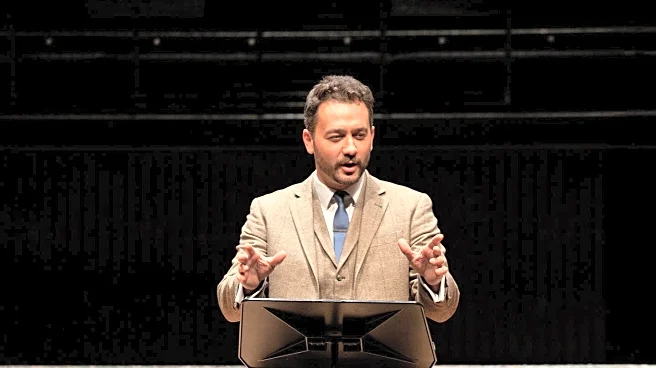What's Happening?
COP30 in Belém, Brazil, is spotlighting the sociobioeconomy, emphasizing the integration of indigenous food practices and sustainable agriculture. The summit features a procurement rule advocating for
diverse and healthy food sourced from local communities, reversing bans on traditional Amazonian foods. The sociobioeconomy approach aims to leverage Brazil's biodiversity for sustainable development, improving wellbeing and reducing poverty while advancing climate change mitigation.
Why It's Important?
The focus on sociobioeconomy at COP30 underscores the importance of sustainable development that respects indigenous knowledge and practices. By promoting local food sourcing, the summit aims to demonstrate the value of standing forests and the role of indigenous communities in managing ecosystems. This approach could influence global climate policies, encouraging other nations to adopt similar strategies that prioritize social and environmental impacts.
What's Next?
COP30's emphasis on sociobioeconomy may lead to increased support for policies that integrate indigenous practices into climate solutions. The procurement rule could stimulate public policies that continue supporting family farming beyond the summit. The event's outcomes may influence future climate negotiations, encouraging a broader adoption of sociobioeconomic principles.
Beyond the Headlines
The sociobioeconomy approach at COP30 highlights the ethical and cultural dimensions of climate action, emphasizing the need to respect and incorporate indigenous knowledge. This focus may lead to long-term shifts in how climate policies are developed, prioritizing inclusive and sustainable approaches that benefit local communities.









